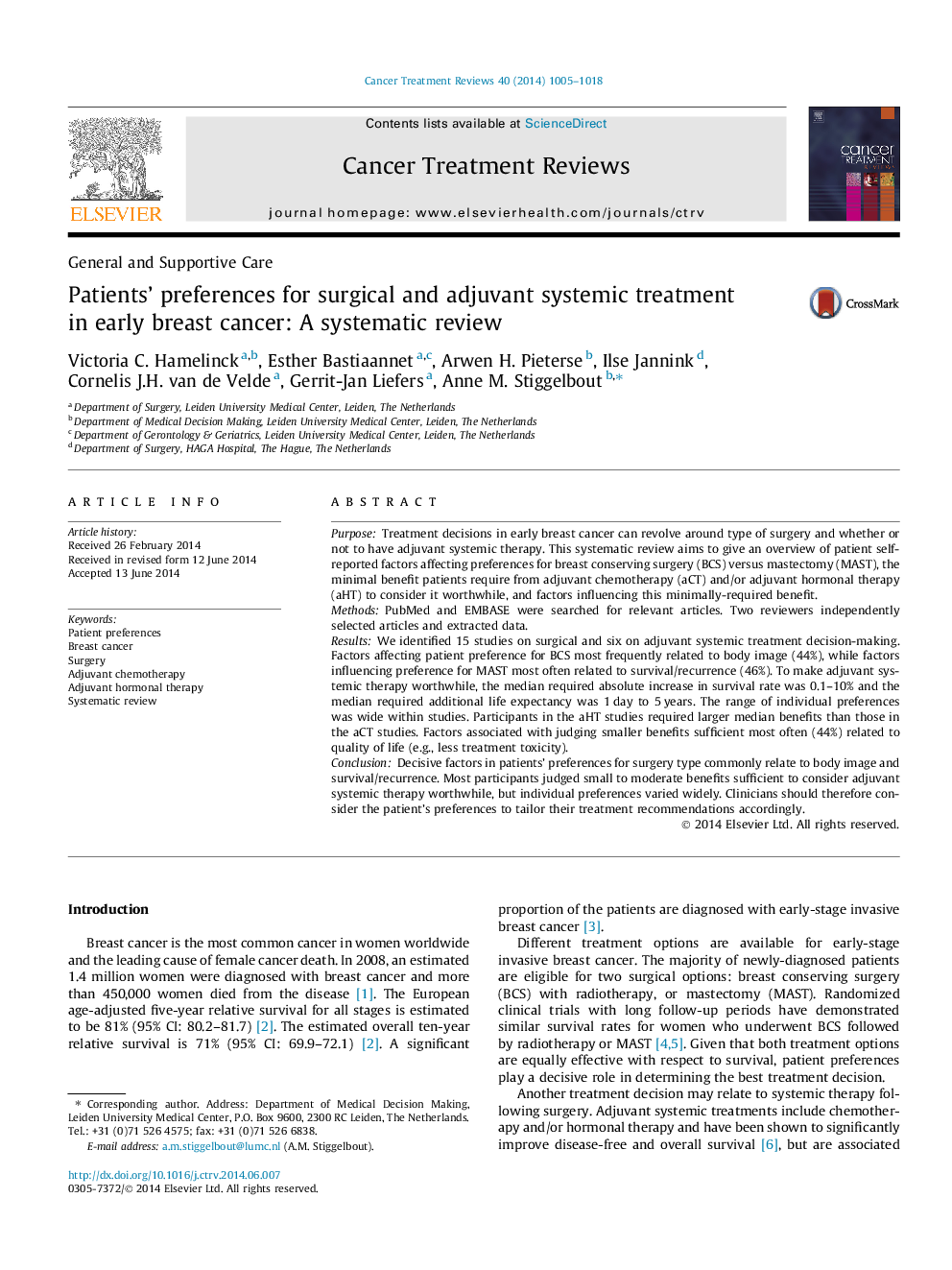| Article ID | Journal | Published Year | Pages | File Type |
|---|---|---|---|---|
| 6190543 | Cancer Treatment Reviews | 2014 | 14 Pages |
PurposeTreatment decisions in early breast cancer can revolve around type of surgery and whether or not to have adjuvant systemic therapy. This systematic review aims to give an overview of patient self-reported factors affecting preferences for breast conserving surgery (BCS) versus mastectomy (MAST), the minimal benefit patients require from adjuvant chemotherapy (aCT) and/or adjuvant hormonal therapy (aHT) to consider it worthwhile, and factors influencing this minimally-required benefit.MethodsPubMed and EMBASE were searched for relevant articles. Two reviewers independently selected articles and extracted data.ResultsWe identified 15 studies on surgical and six on adjuvant systemic treatment decision-making. Factors affecting patient preference for BCS most frequently related to body image (44%), while factors influencing preference for MAST most often related to survival/recurrence (46%). To make adjuvant systemic therapy worthwhile, the median required absolute increase in survival rate was 0.1-10% and the median required additional life expectancy was 1Â day to 5Â years. The range of individual preferences was wide within studies. Participants in the aHT studies required larger median benefits than those in the aCT studies. Factors associated with judging smaller benefits sufficient most often (44%) related to quality of life (e.g., less treatment toxicity).ConclusionDecisive factors in patients' preferences for surgery type commonly relate to body image and survival/recurrence. Most participants judged small to moderate benefits sufficient to consider adjuvant systemic therapy worthwhile, but individual preferences varied widely. Clinicians should therefore consider the patient's preferences to tailor their treatment recommendations accordingly.
